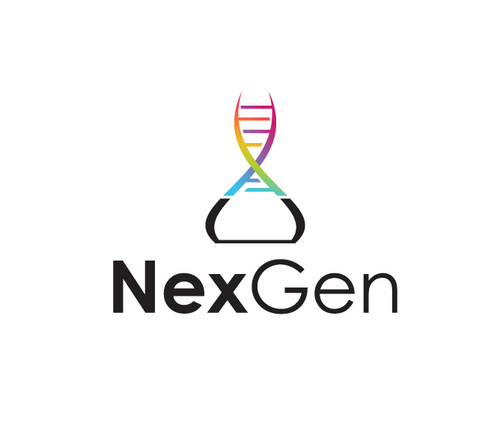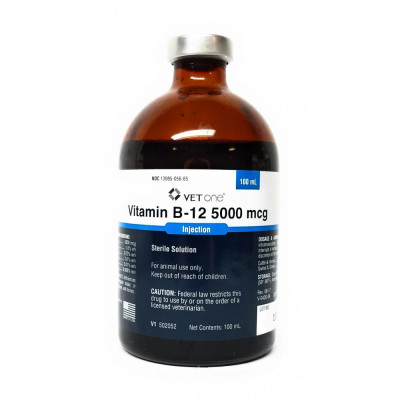
Metabolite Vitamin Combo (Vitamin B12, Dextrose, Amino Acids, Electrolytes), Injectable, (500mL)
Login for pricing
- Brand
- Mixlab
- SKU:
- NC-0266
- Product Type:
- Injectable
- Size:
- 500ml
- Administration:
- Intravenous
Vitamins are organic compounds that horses require in relatively small amounts. There are two types of vitamins—fat soluble vitamins and water soluble vitamins. The National Research Council’s (NRC) Nutrient Requirement of Horseslists estimates of daily needs for several essential vitamins. Since vitamins play such a large role in normal metabolism however, supplementing vitamins over NRC estimates can be advantageous in certain cases.
Vitamin B12 is a water-soluble vitamin which has important roles in nervous system, liver function and is involved in energy metabolism and red blood cell formation. As a dietary supplement, B12 is sometimes given to horses to fight symptoms of fatigue and stress. Unlike other B- vitamins, B12 is not produced naturally within plants and thus cannot be obtained through the horse’s diet; it must be synthesized during hindgut fermentation.
Horses need B12 to ensure normal production of red blood cells, to maintain a healthy reproductive system and to support myelination of nerves.1 Vitamin B12 is also involved in the metabolism of fats and amino acids for energy, and is said to improve physical stamina and to stimulate appetite in horses. B12 is beneficial for horses in high-stress situations such as travel and competition. It is believed that horses on antibiotics or with poor digestive health can benefit from added vitamin B12 in their diet.
Dextrose In horses, it is often used in situations associated with fluid and electrolyte loss. It is also known for its ability to improve electrolyte uptake in horses.
Amino acids (essential and nonessential) are required in adequate supply by horses in their diets in order to make proteins, complex molecules that are required for almost every physiological function, including muscle contraction, neural communication, metabolism of sugars and fats and immune responses.3 Thus, working and performance horses can significantly benefit from amino acid supplementation. Deficiencies in protein or amino acid levels in a horse’s diet can cause a wide range of symptoms, including:
- Muscle loss
- Poor growth
- Poor performance
- Rough coat
- Weak hooves
- Slow recovery from illness
Electrolytes are minerals that naturally occur in all animals and are carried in water, and they are essential for proper health. Electrolytes are comprised of sodium, chloride and potassium, and facilitate the movement of nutrients into cells, aid in muscle function, and help regulate nerve activities.4
A horse’s natural biological functions—breathing, urinating, and defecating, as well as simple evaporation—can all cause it to lose fluids. When a horse eats and drinks, the lost water and electrolytes are replaced. If its fluid intake becomes less than what they are losing, electrolyte balance and even dehydration can occur. Serious electrolyte imbalances can cause a wide range of metabolic problems, including cardiopulmonary episodes.
Where to buy Metabolite Vitamin Combo
This combination of vitamins, amino acids and electrolytes is an excellent adjunct to the diet of working and performance horses.
Please consult your veterinarian prior to beginning any treatment regimen.
FOR RX ONLY: A valid prescription from a licensed veterinarian is required for dispensing this medication.
3Mok C.H., Urschel, K.L. Amino acid requirements in horses. Asian-Australas J Anim Sci. 2020 May;33(5):679-695. doi: 10.5713/ajas.20.0050. Epub 2020 Mar 12. PMID: 32164055; PMCID: PMC7206390.
4Kreeger T., Arnemo, J., Raath, J. Handbook of Wildlife Chemical Immobilization, International Edition, Wildlife Pharmaceuticals, Inc., Fort Collins, CO. (2002).










